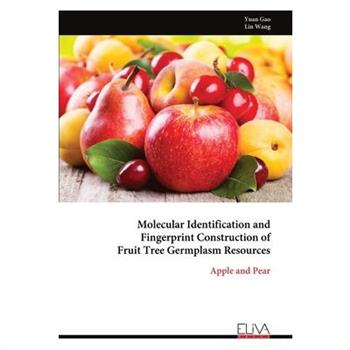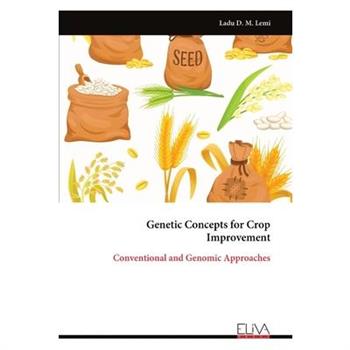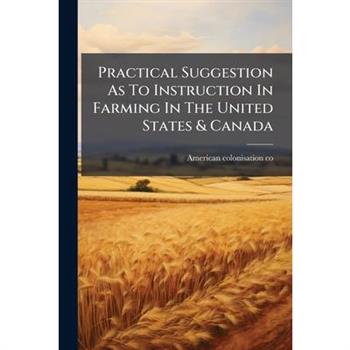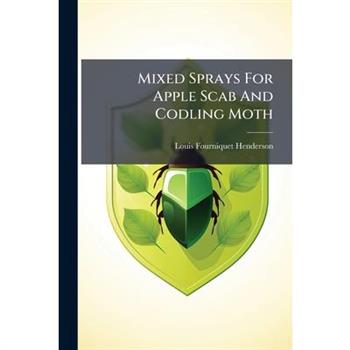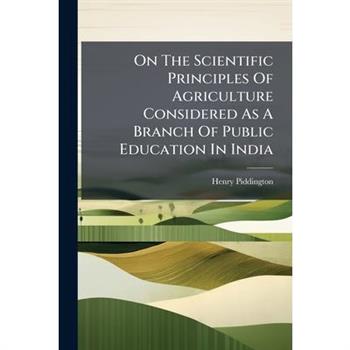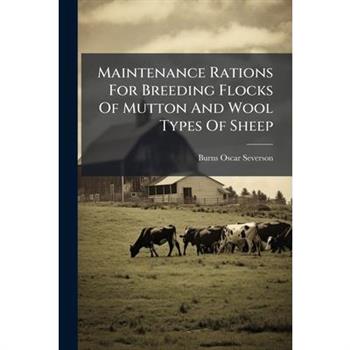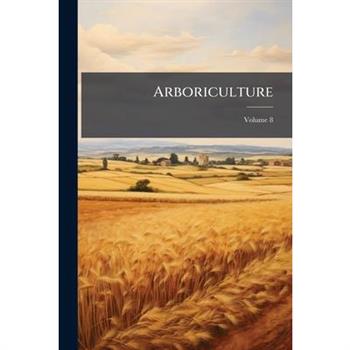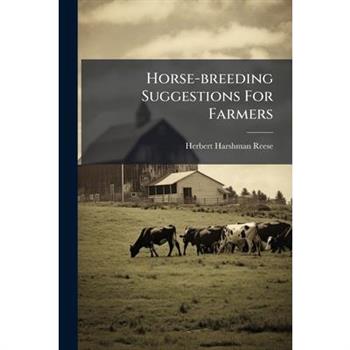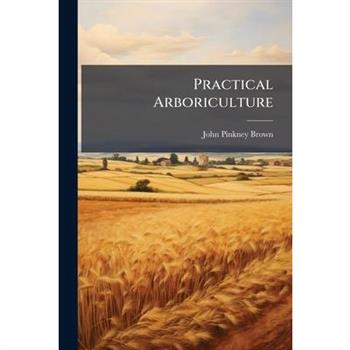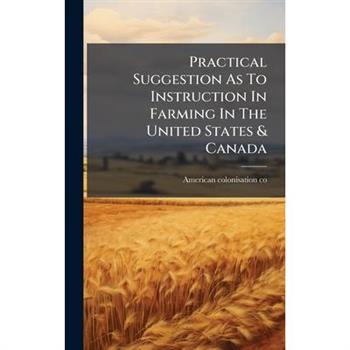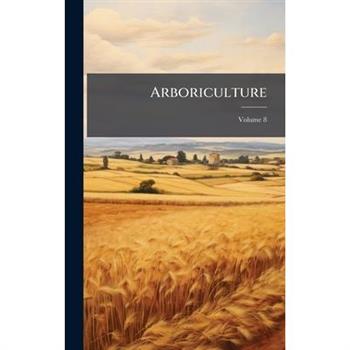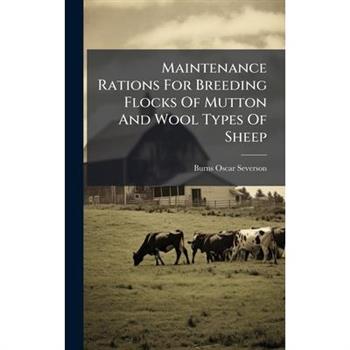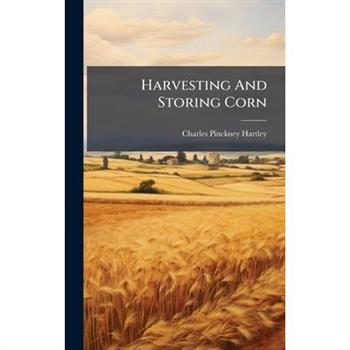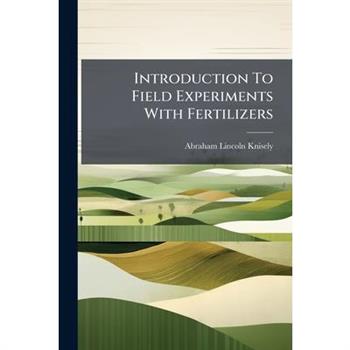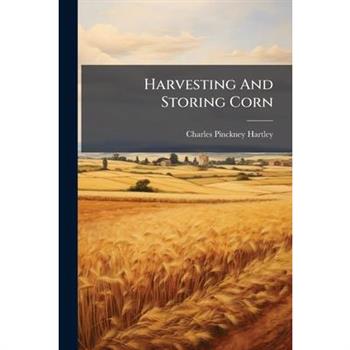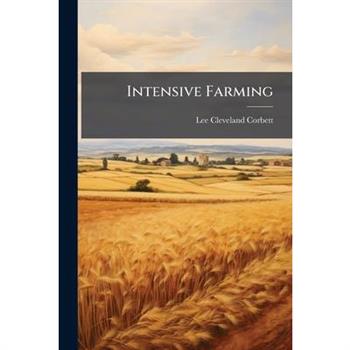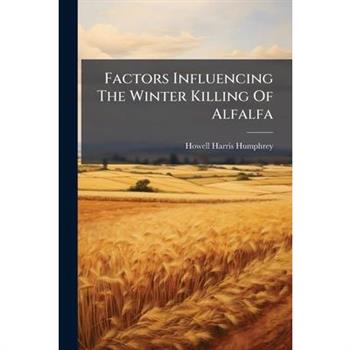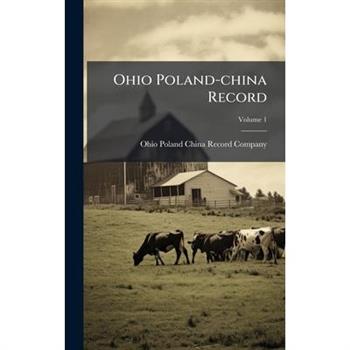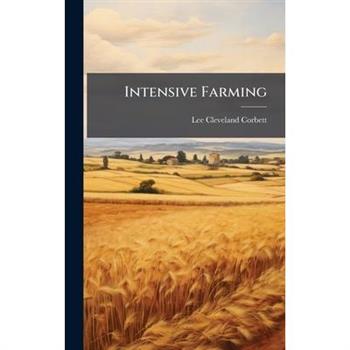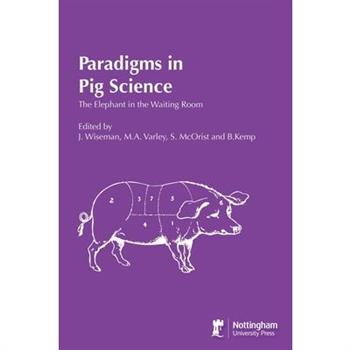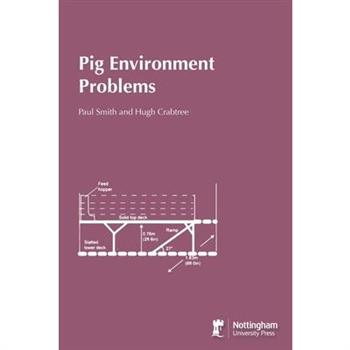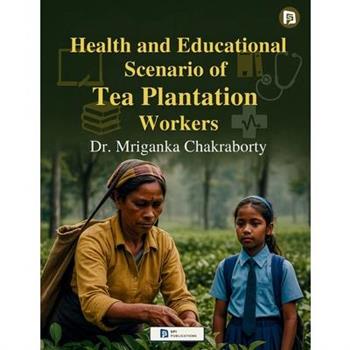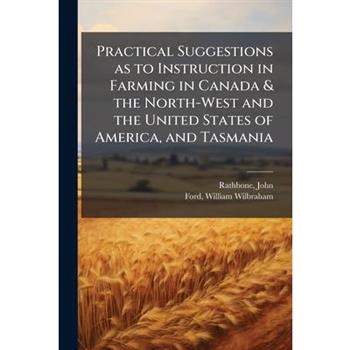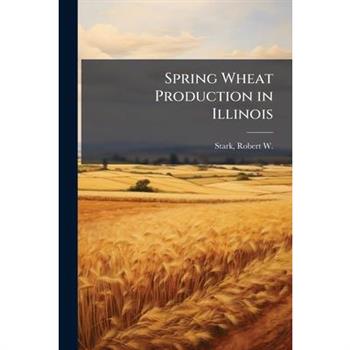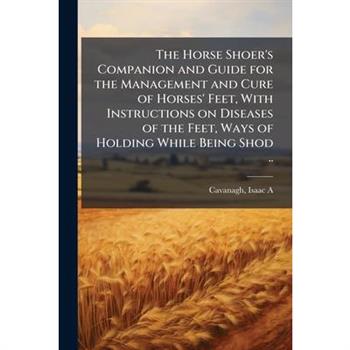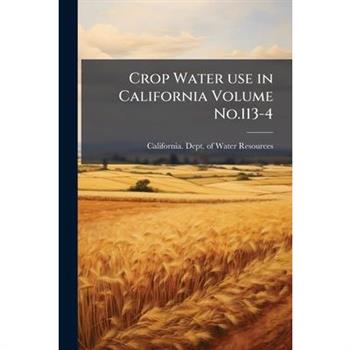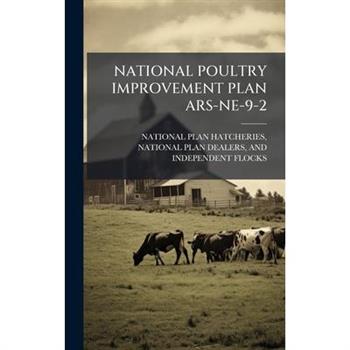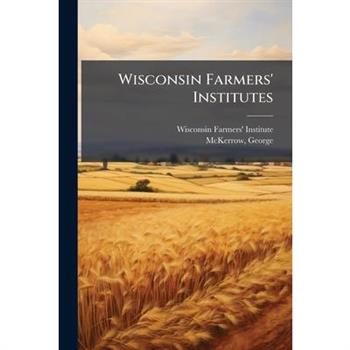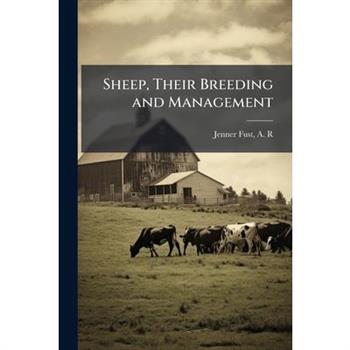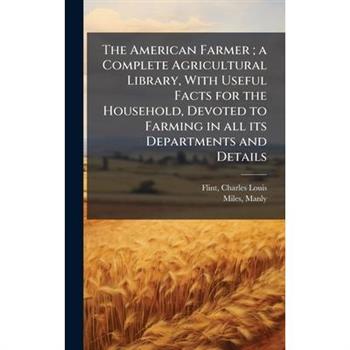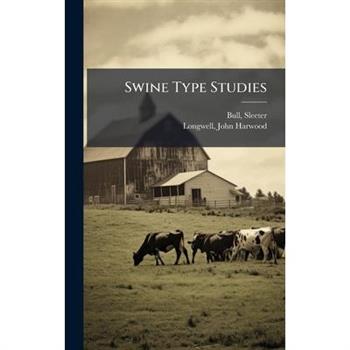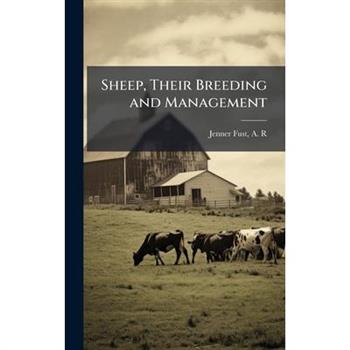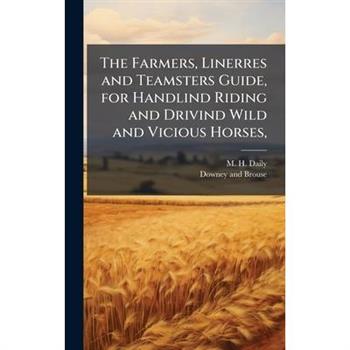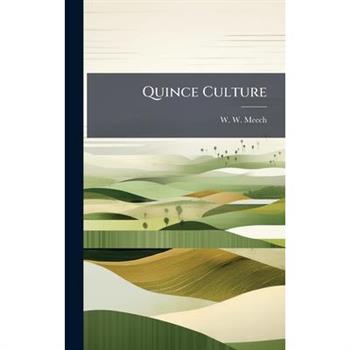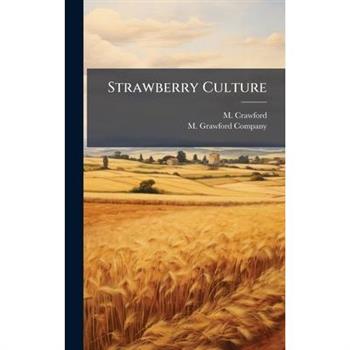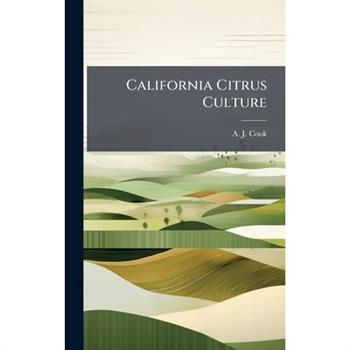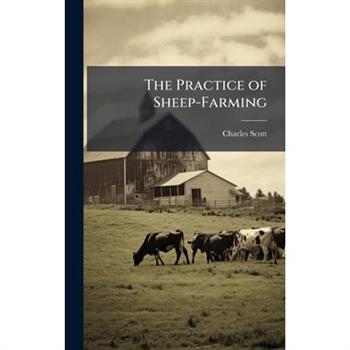Molecular Identification and Fingerprint Construction of Fruit Tree Germplasm Resources
China has abundant germplasm resources of fruit trees. According to incomplete statistics, there are 3893 botanical species among the 45 major fruit tree species worldwide, with 725 originating from China, accounting for 18.62% of the world; The wild species of major fruit trees such as apples, pears, grapes, etc. originating from China account for 56.13% of the world. Based on the preservation of so many fruit tree germplasm resources, actively and effectively conducting research on the mechanisms and developmental patterns of fruit tree trait variation and diversity formation, excavating excellent fruit tree germplasm, and breeding new varieties are fundamental to solving the challenges of fruit tree breeding and industry. However, when we conducted identification, evaluation, breeding, we found many problems such as germplasm confusion, homonymous foreign objects, which are highly likely to occur for asexual reproduction crops. Therefore, it is necessary to give each germplasm and variety an identity that can transform their essential and genetic differences into macroscopic, visual, and quickly identifiable evidence. Simple Sequences Repeat (SSR) is considered to be the simplest, most effective, and most reproducible molecular marker method for germplasm identification. Although with the development of resequencing and molecular markers, more and more people pay more attention on the other molecular markers, but SSR always occupying an important position in molecular marker identification of varieties especially in protecting variety rights. In our research, from the initial use of traditional molecular marker detection, to the combination with fluorescence detection, and then to the implementation of high-throughput molecular marker fluorescence detection, the methods have been continuously updated and improved in efficiency. We have established a comprehensive molecular marker identification system for apple and pear, and developed a method for constructing their molecular identity cards. These methods have been utilized in the processes of germplasm resource preservation, utilization, and breeding.
Genetic Concepts for Crop Improvement
In the face of global food insecurity, increasing human population and diminishing sizes of the available arable due to global warming and abiotic/biotic stresses, the future of agriculture will depend on innovative solutions that can deliver new crop varieties and confer resilience. Strategies in crop Improvement are the only foundation of hope for the future of global food systems. Grounded in the practical truth of sustainable agricultural practices, this book provides a comprehensive examination of the latest technologies in crop improvement that are transforming crop breeding and cultivation of the world's most widely grown crops. The book takes a deep dive into the application of both traditional and modern science in increasing crop yield, quality, enhanced disease and pest resistance and adaptability of wheat and other important crop in the world food system. Whether you are a researcher, extension agent, policymaker, plant breeder, agronomist or an enthusiast of future food supply, this book is an invaluable resource that provides both the knowledge and inspiration needed to make an impact on food systems around the world to ensure sustainable food supply and security for the future of our planet.
Practical Suggestion As To Instruction In Farming In The United States & Canada
"Practical Suggestion As To Instruction In Farming In The United States & Canada" offers insights into agricultural education during the 19th century. This historical work provides a snapshot of farming practices and instructional methods prevalent in both the United States and Canada. It serves as a valuable resource for understanding the evolution of agricultural techniques and the challenges faced by farmers in North America during a period of significant growth and change. This book is a useful resource for historians, agricultural students, and anyone interested in the historical development of farming in North America.This work has been selected by scholars as being culturally important, and is part of the knowledge base of civilization as we know it. This work was reproduced from the original artifact, and remains as true to the original work as possible. Therefore, you will see the original copyright references, library stamps (as most of these works have been housed in our most important libraries around the world), and other notations in the work.This work is in the public domain in the United States of America, and possibly other nations. Within the United States, you may freely copy and distribute this work, as no entity (individual or corporate) has a copyright on the body of the work.As a reproduction of a historical artifact, this work may contain missing or blurred pages, poor pictures, errant marks, etc. Scholars believe, and we concur, that this work is important enough to be preserved, reproduced, and made generally available to the public. We appreciate your support of the preservation process, and thank you for being an important part of keeping this knowledge alive and relevant.
Mixed Sprays For Apple Scab And Codling Moth
"Mixed Sprays For Apple Scab And Codling Moth" offers practical guidance on managing common threats to apple orchards. This detailed manual, penned by Louis Fourniquet Henderson, provides comprehensive information on the preparation and application of mixed sprays to combat apple scab and codling moth, two significant challenges for apple growers. The book delves into the composition of effective sprays, timing of applications, and methods to ensure optimal coverage, providing a valuable resource for both novice and experienced orchardists. By understanding and implementing the techniques outlined in this work, growers can protect their crops and enhance the productivity of their orchards. This title remains relevant for those seeking historical context in agricultural practices and a deeper understanding of traditional approaches to pest management.This work has been selected by scholars as being culturally important, and is part of the knowledge base of civilization as we know it. This work was reproduced from the original artifact, and remains as true to the original work as possible. Therefore, you will see the original copyright references, library stamps (as most of these works have been housed in our most important libraries around the world), and other notations in the work.This work is in the public domain in the United States of America, and possibly other nations. Within the United States, you may freely copy and distribute this work, as no entity (individual or corporate) has a copyright on the body of the work.As a reproduction of a historical artifact, this work may contain missing or blurred pages, poor pictures, errant marks, etc. Scholars believe, and we concur, that this work is important enough to be preserved, reproduced, and made generally available to the public. We appreciate your support of the preservation process, and thank you for being an important part of keeping this knowledge alive and relevant.
On The Scientific Principles Of Agriculture Considered As A Branch Of Public Education In India
"On The Scientific Principles Of Agriculture Considered As A Branch Of Public Education In India" by Henry Piddington, originally printed for private circulation in 1839, explores the crucial intersection of agricultural science and public education within the Indian context. This historically significant work advocates for integrating scientific methodologies into agricultural practices to enhance productivity and sustainability. Piddington's treatise offers insights into the educational strategies deemed essential for disseminating agricultural knowledge and fostering innovation among Indian farmers. It highlights the importance of viewing agriculture not merely as a traditional occupation but as a field grounded in scientific understanding. This publication serves as a valuable resource for those interested in the history of agricultural science, educational reform in India, and the enduring relevance of scientific principles in addressing agricultural challenges.This work has been selected by scholars as being culturally important, and is part of the knowledge base of civilization as we know it. This work was reproduced from the original artifact, and remains as true to the original work as possible. Therefore, you will see the original copyright references, library stamps (as most of these works have been housed in our most important libraries around the world), and other notations in the work.This work is in the public domain in the United States of America, and possibly other nations. Within the United States, you may freely copy and distribute this work, as no entity (individual or corporate) has a copyright on the body of the work.As a reproduction of a historical artifact, this work may contain missing or blurred pages, poor pictures, errant marks, etc. Scholars believe, and we concur, that this work is important enough to be preserved, reproduced, and made generally available to the public. We appreciate your support of the preservation process, and thank you for being an important part of keeping this knowledge alive and relevant.
Maintenance Rations For Breeding Flocks Of Mutton And Wool Types Of Sheep
"Maintenance Rations For Breeding Flocks Of Mutton And Wool Types Of Sheep" offers detailed insights into the nutritional requirements of breeding sheep. Focusing on both mutton and wool breeds, this book provides practical guidance on formulating effective maintenance rations. It addresses the specific dietary needs of breeding flocks to optimize their health, productivity, and the quality of their wool and meat. This resource is invaluable for farmers, ranchers, and animal nutritionists seeking to enhance their sheep management practices through informed feeding strategies.This work has been selected by scholars as being culturally important, and is part of the knowledge base of civilization as we know it. This work was reproduced from the original artifact, and remains as true to the original work as possible. Therefore, you will see the original copyright references, library stamps (as most of these works have been housed in our most important libraries around the world), and other notations in the work.This work is in the public domain in the United States of America, and possibly other nations. Within the United States, you may freely copy and distribute this work, as no entity (individual or corporate) has a copyright on the body of the work.As a reproduction of a historical artifact, this work may contain missing or blurred pages, poor pictures, errant marks, etc. Scholars believe, and we concur, that this work is important enough to be preserved, reproduced, and made generally available to the public. We appreciate your support of the preservation process, and thank you for being an important part of keeping this knowledge alive and relevant.
Arboriculture
Arboriculture, Volume 8 offers a comprehensive exploration into the cultivation and management of trees, particularly within urban and cultivated landscapes. This volume delves into practical techniques for planting, pruning, and maintaining trees to enhance their health and aesthetic appeal. The book emphasizes the crucial role of arboriculture in urban planning and environmental conservation, providing valuable insights for both professionals and enthusiasts. With detailed guidance on species selection, disease prevention, and sustainable practices, "Arboriculture, Volume 8" serves as an indispensable resource for fostering thriving arboreal environments.This work has been selected by scholars as being culturally important, and is part of the knowledge base of civilization as we know it. This work was reproduced from the original artifact, and remains as true to the original work as possible. Therefore, you will see the original copyright references, library stamps (as most of these works have been housed in our most important libraries around the world), and other notations in the work.This work is in the public domain in the United States of America, and possibly other nations. Within the United States, you may freely copy and distribute this work, as no entity (individual or corporate) has a copyright on the body of the work.As a reproduction of a historical artifact, this work may contain missing or blurred pages, poor pictures, errant marks, etc. Scholars believe, and we concur, that this work is important enough to be preserved, reproduced, and made generally available to the public. We appreciate your support of the preservation process, and thank you for being an important part of keeping this knowledge alive and relevant.
A Successful Alabama Diversification Farm
"A Successful Alabama Diversification Farm" offers a detailed look into the principles and practices of running a diversified farm in Alabama. Authored by M. A. Crosby, John Frederick Duggar, and William Jasper Spillman, this work provides insights into optimizing farm operations, increasing yields, and ensuring long-term sustainability. With practical advice applicable to small and medium-sized farms, the book covers various aspects of diversification, from crop rotation to livestock management. This book is valuable for agricultural students, researchers, and anyone interested in the historical context of farming in the Southern United States. It provides a fascinating glimpse into early 20th-century agricultural techniques and their impact on local economies. Readers will appreciate the detailed observations and recommendations aimed at creating a balanced and profitable farm.This work has been selected by scholars as being culturally important, and is part of the knowledge base of civilization as we know it. This work was reproduced from the original artifact, and remains as true to the original work as possible. Therefore, you will see the original copyright references, library stamps (as most of these works have been housed in our most important libraries around the world), and other notations in the work.This work is in the public domain in the United States of America, and possibly other nations. Within the United States, you may freely copy and distribute this work, as no entity (individual or corporate) has a copyright on the body of the work.As a reproduction of a historical artifact, this work may contain missing or blurred pages, poor pictures, errant marks, etc. Scholars believe, and we concur, that this work is important enough to be preserved, reproduced, and made generally available to the public. We appreciate your support of the preservation process, and thank you for being an important part of keeping this knowledge alive and relevant.
Cheese And Butter Factories And Creameries
"Cheese And Butter Factories And Creameries: Their Construction, Equipment, And Management" offers a comprehensive guide to establishing and running successful dairy processing facilities. Authored by John Sawers, this book details the intricacies of constructing efficient factories and creameries, selecting appropriate equipment, and implementing effective management strategies. From the layout of the facility to the specifics of cheese and butter production, Sawers provides invaluable insights for both novice and experienced operators. The book emphasizes best practices in hygiene, quality control, and operational efficiency, ensuring that readers can produce high-quality dairy products consistently. This book is a practical resource for anyone involved in the dairy industry, offering detailed advice on creating a profitable and sustainable business.This work has been selected by scholars as being culturally important, and is part of the knowledge base of civilization as we know it. This work was reproduced from the original artifact, and remains as true to the original work as possible. Therefore, you will see the original copyright references, library stamps (as most of these works have been housed in our most important libraries around the world), and other notations in the work.This work is in the public domain in the United States of America, and possibly other nations. Within the United States, you may freely copy and distribute this work, as no entity (individual or corporate) has a copyright on the body of the work.As a reproduction of a historical artifact, this work may contain missing or blurred pages, poor pictures, errant marks, etc. Scholars believe, and we concur, that this work is important enough to be preserved, reproduced, and made generally available to the public. We appreciate your support of the preservation process, and thank you for being an important part of keeping this knowledge alive and relevant.
Horse-breeding Suggestions For Farmers
"Horse-breeding Suggestions For Farmers" offers practical guidance on horse breeding tailored for agricultural needs. Written by Herbert Harshman Reese, this work provides insights into the selection of breeding stock, care of mares, and raising healthy foals. It addresses the specific requirements of farmers who relied on horses for labor and transportation. The book emphasizes methods suited for the early 20th-century farming environment. Reese's advice aims to improve the quality and efficiency of horse breeding within the agricultural sector.This work has been selected by scholars as being culturally important, and is part of the knowledge base of civilization as we know it. This work was reproduced from the original artifact, and remains as true to the original work as possible. Therefore, you will see the original copyright references, library stamps (as most of these works have been housed in our most important libraries around the world), and other notations in the work.This work is in the public domain in the United States of America, and possibly other nations. Within the United States, you may freely copy and distribute this work, as no entity (individual or corporate) has a copyright on the body of the work.As a reproduction of a historical artifact, this work may contain missing or blurred pages, poor pictures, errant marks, etc. Scholars believe, and we concur, that this work is important enough to be preserved, reproduced, and made generally available to the public. We appreciate your support of the preservation process, and thank you for being an important part of keeping this knowledge alive and relevant.
Practical Arboriculture
"Practical Arboriculture" by John Pinkney Brown explores the profound influence of forests on climate, wind patterns, flood prevention, and overall national prosperity. This comprehensive guide delves into the practical aspects of forest management, highlighting the vital role of trees in maintaining ecological balance and supporting economic stability. From mitigating the effects of climate change to controlling soil erosion and ensuring sustainable resources, this book offers invaluable insights into the importance of arboriculture. Readers will discover how forests act as natural regulators of the environment, contributing to a healthier planet and a more secure future. This work underscores the enduring value of responsible forest stewardship and its lasting impact on generations to come.This work has been selected by scholars as being culturally important, and is part of the knowledge base of civilization as we know it. This work was reproduced from the original artifact, and remains as true to the original work as possible. Therefore, you will see the original copyright references, library stamps (as most of these works have been housed in our most important libraries around the world), and other notations in the work.This work is in the public domain in the United States of America, and possibly other nations. Within the United States, you may freely copy and distribute this work, as no entity (individual or corporate) has a copyright on the body of the work.As a reproduction of a historical artifact, this work may contain missing or blurred pages, poor pictures, errant marks, etc. Scholars believe, and we concur, that this work is important enough to be preserved, reproduced, and made generally available to the public. We appreciate your support of the preservation process, and thank you for being an important part of keeping this knowledge alive and relevant.
Practical Suggestion As To Instruction In Farming In The United States & Canada
"Practical Suggestion As To Instruction In Farming In The United States & Canada" offers insights into agricultural education during the 19th century. This historical work provides a snapshot of farming practices and instructional methods prevalent in both the United States and Canada. It serves as a valuable resource for understanding the evolution of agricultural techniques and the challenges faced by farmers in North America during a period of significant growth and change. This book is a useful resource for historians, agricultural students, and anyone interested in the historical development of farming in North America.This work has been selected by scholars as being culturally important, and is part of the knowledge base of civilization as we know it. This work was reproduced from the original artifact, and remains as true to the original work as possible. Therefore, you will see the original copyright references, library stamps (as most of these works have been housed in our most important libraries around the world), and other notations in the work.This work is in the public domain in the United States of America, and possibly other nations. Within the United States, you may freely copy and distribute this work, as no entity (individual or corporate) has a copyright on the body of the work.As a reproduction of a historical artifact, this work may contain missing or blurred pages, poor pictures, errant marks, etc. Scholars believe, and we concur, that this work is important enough to be preserved, reproduced, and made generally available to the public. We appreciate your support of the preservation process, and thank you for being an important part of keeping this knowledge alive and relevant.
Arboriculture
Arboriculture, Volume 8 offers a comprehensive exploration into the cultivation and management of trees, particularly within urban and cultivated landscapes. This volume delves into practical techniques for planting, pruning, and maintaining trees to enhance their health and aesthetic appeal. The book emphasizes the crucial role of arboriculture in urban planning and environmental conservation, providing valuable insights for both professionals and enthusiasts. With detailed guidance on species selection, disease prevention, and sustainable practices, "Arboriculture, Volume 8" serves as an indispensable resource for fostering thriving arboreal environments.This work has been selected by scholars as being culturally important, and is part of the knowledge base of civilization as we know it. This work was reproduced from the original artifact, and remains as true to the original work as possible. Therefore, you will see the original copyright references, library stamps (as most of these works have been housed in our most important libraries around the world), and other notations in the work.This work is in the public domain in the United States of America, and possibly other nations. Within the United States, you may freely copy and distribute this work, as no entity (individual or corporate) has a copyright on the body of the work.As a reproduction of a historical artifact, this work may contain missing or blurred pages, poor pictures, errant marks, etc. Scholars believe, and we concur, that this work is important enough to be preserved, reproduced, and made generally available to the public. We appreciate your support of the preservation process, and thank you for being an important part of keeping this knowledge alive and relevant.
Maintenance Rations For Breeding Flocks Of Mutton And Wool Types Of Sheep
"Maintenance Rations For Breeding Flocks Of Mutton And Wool Types Of Sheep" offers detailed insights into the nutritional requirements of breeding sheep. Focusing on both mutton and wool breeds, this book provides practical guidance on formulating effective maintenance rations. It addresses the specific dietary needs of breeding flocks to optimize their health, productivity, and the quality of their wool and meat. This resource is invaluable for farmers, ranchers, and animal nutritionists seeking to enhance their sheep management practices through informed feeding strategies.This work has been selected by scholars as being culturally important, and is part of the knowledge base of civilization as we know it. This work was reproduced from the original artifact, and remains as true to the original work as possible. Therefore, you will see the original copyright references, library stamps (as most of these works have been housed in our most important libraries around the world), and other notations in the work.This work is in the public domain in the United States of America, and possibly other nations. Within the United States, you may freely copy and distribute this work, as no entity (individual or corporate) has a copyright on the body of the work.As a reproduction of a historical artifact, this work may contain missing or blurred pages, poor pictures, errant marks, etc. Scholars believe, and we concur, that this work is important enough to be preserved, reproduced, and made generally available to the public. We appreciate your support of the preservation process, and thank you for being an important part of keeping this knowledge alive and relevant.
Harvesting And Storing Corn
"Harvesting and Storing Corn" is a practical guide written by Charles Pinckney Hartley, offering detailed instructions and advice for farmers and agricultural enthusiasts. This book delves into the essential techniques for successfully harvesting corn crops and ensuring their proper storage to prevent spoilage and maintain quality. Focusing on time-tested methods, the author provides insights into optimal harvesting times, efficient harvesting processes, and the best storage solutions for different environments. Whether you are a seasoned farmer or a beginner, this book provides valuable information to help you maximize your corn yield and preserve your harvest effectively. Gain a deeper understanding of the art and science behind corn harvesting and storage with this comprehensive manual.This work has been selected by scholars as being culturally important, and is part of the knowledge base of civilization as we know it. This work was reproduced from the original artifact, and remains as true to the original work as possible. Therefore, you will see the original copyright references, library stamps (as most of these works have been housed in our most important libraries around the world), and other notations in the work.This work is in the public domain in the United States of America, and possibly other nations. Within the United States, you may freely copy and distribute this work, as no entity (individual or corporate) has a copyright on the body of the work.As a reproduction of a historical artifact, this work may contain missing or blurred pages, poor pictures, errant marks, etc. Scholars believe, and we concur, that this work is important enough to be preserved, reproduced, and made generally available to the public. We appreciate your support of the preservation process, and thank you for being an important part of keeping this knowledge alive and relevant.
Introduction To Field Experiments With Fertilizers
"Introduction To Field Experiments With Fertilizers" by Abraham Lincoln Knisely provides a comprehensive guide to conducting effective field experiments with fertilizers. This book is an invaluable resource for students, researchers, and practitioners in agronomy and agricultural science, offering detailed methodologies and practical insights into optimizing fertilizer use.Knisely's work emphasizes the importance of rigorous experimental design and data analysis in understanding the impact of different fertilizers on crop yields and soil health. This book covers a wide range of topics, from initial planning and site selection to data interpretation and reporting. By providing clear and concise explanations, Knisely equips readers with the knowledge and skills necessary to conduct meaningful and reliable field experiments.This work has been selected by scholars as being culturally important, and is part of the knowledge base of civilization as we know it. This work was reproduced from the original artifact, and remains as true to the original work as possible. Therefore, you will see the original copyright references, library stamps (as most of these works have been housed in our most important libraries around the world), and other notations in the work.This work is in the public domain in the United States of America, and possibly other nations. Within the United States, you may freely copy and distribute this work, as no entity (individual or corporate) has a copyright on the body of the work.As a reproduction of a historical artifact, this work may contain missing or blurred pages, poor pictures, errant marks, etc. Scholars believe, and we concur, that this work is important enough to be preserved, reproduced, and made generally available to the public. We appreciate your support of the preservation process, and thank you for being an important part of keeping this knowledge alive and relevant.
Harvesting And Storing Corn
"Harvesting and Storing Corn" is a practical guide written by Charles Pinckney Hartley, offering detailed instructions and advice for farmers and agricultural enthusiasts. This book delves into the essential techniques for successfully harvesting corn crops and ensuring their proper storage to prevent spoilage and maintain quality. Focusing on time-tested methods, the author provides insights into optimal harvesting times, efficient harvesting processes, and the best storage solutions for different environments. Whether you are a seasoned farmer or a beginner, this book provides valuable information to help you maximize your corn yield and preserve your harvest effectively. Gain a deeper understanding of the art and science behind corn harvesting and storage with this comprehensive manual.This work has been selected by scholars as being culturally important, and is part of the knowledge base of civilization as we know it. This work was reproduced from the original artifact, and remains as true to the original work as possible. Therefore, you will see the original copyright references, library stamps (as most of these works have been housed in our most important libraries around the world), and other notations in the work.This work is in the public domain in the United States of America, and possibly other nations. Within the United States, you may freely copy and distribute this work, as no entity (individual or corporate) has a copyright on the body of the work.As a reproduction of a historical artifact, this work may contain missing or blurred pages, poor pictures, errant marks, etc. Scholars believe, and we concur, that this work is important enough to be preserved, reproduced, and made generally available to the public. We appreciate your support of the preservation process, and thank you for being an important part of keeping this knowledge alive and relevant.
Intensive Farming
Intensive Farming explores the principles and practices of maximizing agricultural output through advanced techniques and resource management. This book provides a detailed overview of methods aimed at increasing crop yields and improving efficiency in farming operations. From soil management to irrigation strategies, it covers essential aspects of intensive agriculture. Lee Cleveland Corbett delves into the scientific underpinnings of these methods, offering insights into how farmers can optimize their land use and improve productivity while also considering environmental sustainability. A valuable resource for agricultural students, professionals, and anyone interested in the future of food production, Intensive Farming presents a comprehensive guide to modern farming practices.This work has been selected by scholars as being culturally important, and is part of the knowledge base of civilization as we know it. This work was reproduced from the original artifact, and remains as true to the original work as possible. Therefore, you will see the original copyright references, library stamps (as most of these works have been housed in our most important libraries around the world), and other notations in the work.This work is in the public domain in the United States of America, and possibly other nations. Within the United States, you may freely copy and distribute this work, as no entity (individual or corporate) has a copyright on the body of the work.As a reproduction of a historical artifact, this work may contain missing or blurred pages, poor pictures, errant marks, etc. Scholars believe, and we concur, that this work is important enough to be preserved, reproduced, and made generally available to the public. We appreciate your support of the preservation process, and thank you for being an important part of keeping this knowledge alive and relevant.
Factors Influencing The Winter Killing Of Alfalfa
An essential resource for agricultural researchers and farmers, "Factors Influencing The Winter Killing Of Alfalfa" delves into the critical elements affecting the survival of alfalfa crops during winter. This study explores the various environmental and biological factors that contribute to winterkill, offering insights into how to mitigate these effects and improve crop resilience. Understanding these factors is crucial for ensuring sustainable alfalfa production and maintaining forage quality. This work remains a valuable contribution to the field of agronomy.This work has been selected by scholars as being culturally important, and is part of the knowledge base of civilization as we know it. This work was reproduced from the original artifact, and remains as true to the original work as possible. Therefore, you will see the original copyright references, library stamps (as most of these works have been housed in our most important libraries around the world), and other notations in the work.This work is in the public domain in the United States of America, and possibly other nations. Within the United States, you may freely copy and distribute this work, as no entity (individual or corporate) has a copyright on the body of the work.As a reproduction of a historical artifact, this work may contain missing or blurred pages, poor pictures, errant marks, etc. Scholars believe, and we concur, that this work is important enough to be preserved, reproduced, and made generally available to the public. We appreciate your support of the preservation process, and thank you for being an important part of keeping this knowledge alive and relevant.
Ohio Poland-china Record
"Ohio Poland-China Record, Volume 1" provides a comprehensive registry of Poland China pigs in Ohio. This historical record offers invaluable insights into the lineage and breeding of this important livestock breed. Compiled by the Ohio Poland-China Record Company, this volume serves as a crucial resource for agricultural historians, animal scientists, and those interested in the development of animal husbandry in the United States. Detailing the characteristics and pedigrees of Poland China pigs, this book is essential for understanding agricultural practices and the evolution of livestock farming. It serves as a window into the past, showcasing the dedication and practices of breeders in the early 20th century. A must-have for anyone studying agricultural history or tracing the roots of animal science.This work has been selected by scholars as being culturally important, and is part of the knowledge base of civilization as we know it. This work was reproduced from the original artifact, and remains as true to the original work as possible. Therefore, you will see the original copyright references, library stamps (as most of these works have been housed in our most important libraries around the world), and other notations in the work.This work is in the public domain in the United States of America, and possibly other nations. Within the United States, you may freely copy and distribute this work, as no entity (individual or corporate) has a copyright on the body of the work.As a reproduction of a historical artifact, this work may contain missing or blurred pages, poor pictures, errant marks, etc. Scholars believe, and we concur, that this work is important enough to be preserved, reproduced, and made generally available to the public. We appreciate your support of the preservation process, and thank you for being an important part of keeping this knowledge alive and relevant.
Intensive Farming
Intensive Farming explores the principles and practices of maximizing agricultural output through advanced techniques and resource management. This book provides a detailed overview of methods aimed at increasing crop yields and improving efficiency in farming operations. From soil management to irrigation strategies, it covers essential aspects of intensive agriculture. Lee Cleveland Corbett delves into the scientific underpinnings of these methods, offering insights into how farmers can optimize their land use and improve productivity while also considering environmental sustainability. A valuable resource for agricultural students, professionals, and anyone interested in the future of food production, Intensive Farming presents a comprehensive guide to modern farming practices.This work has been selected by scholars as being culturally important, and is part of the knowledge base of civilization as we know it. This work was reproduced from the original artifact, and remains as true to the original work as possible. Therefore, you will see the original copyright references, library stamps (as most of these works have been housed in our most important libraries around the world), and other notations in the work.This work is in the public domain in the United States of America, and possibly other nations. Within the United States, you may freely copy and distribute this work, as no entity (individual or corporate) has a copyright on the body of the work.As a reproduction of a historical artifact, this work may contain missing or blurred pages, poor pictures, errant marks, etc. Scholars believe, and we concur, that this work is important enough to be preserved, reproduced, and made generally available to the public. We appreciate your support of the preservation process, and thank you for being an important part of keeping this knowledge alive and relevant.
Feed into Milk
Strategic research in ruminant nutrition has greatly improved our understanding of the processes involved in the conversion of feed to milk. However, the lack of an up to date framework to incorporate this knowledge into support systems has meant that much of the technology has not been transferred into practice in a way that can aid the sustainability of milk production systems.The aim of Feed into Milk (FiM) was to develop this framework in close collaboration with the dairy support industry so that an improved nutritional model could be applied with immediate effect. The project comprised reviews and evaluations of current relevant information on feeding systems, a joint modelling, animal experiment and feed evaluation approach to deriving an improved diet formulation system and the construction of an improved applied nutrition model to meet the future needs of the dairy farmer and the feed industry. This advisory manual is one of the main outcomes of the project and is aimed at consultants, research workers, academics and students of animal nutrition.This manual explains the background and principles involved in deriving the FiM system and provides the rationale and the equations for the prediction of intake and the calculation of the requirements and supply of energy and protein. In addition the manual recognizes that an applied feeding system is only part of the process of diet formulation and provides a series of decision support systems (DSS) to assist in building rations for dairy cows. The accompanying CD explains the principles of diet formulation and provides examples on the use of the DSS. The complete set of equations is listed in software format and this together with an extensive feed database enables the user to begin formulating diets with almost immediate effect.
Paradigms In Pig Science
Original edition reissued in 2023 with new cover. This is a print on demand title and is not held in stock. The delivery leadtimes will be longer. These proceedings are based on the 62nd Easter School in the Agricultural and Food Sciences held at the University of Nottingham in 2007. It brings together an extremely diverse range of topics, all presented by recognised global experts in their field. The book will appeal to anybody who is involved in pig science and practice.This book is a complementary text to the three previous conferences 'Principles of Pig Science', 'Progress in Pig Science' 'Perspectives in Pig Science' all available from Nottingham University Press.
Perfecting the Pig Environment
Original edition reissued in 2023 with new cover. This is a print on demand title and is not held in stock. The delivery leadtimes will be longer. Like its predecessor, this publication is written for students and those professionals who choose to work at the 'sharp end' of the pig industry and are driven by a desire to improve the environment that farmers provide for pigs. The authors describe proven monitoring techniques which can also interpret data and automatically implement adjustments to environment control systems. Readers are led through a series of case studies from commercial pig farms. Explanations of the source of problems within pig buildings are provided and augmented by graphical data which are explained in simple terms. In particular, the book makes much reference to I.T. devices already in use within other industries and speculates how these will be increasingly used to help pig farmers integrate more closely with their food chain partners.
Pig Environment Problems
Original edition reissued in 2023 with new cover. This is a print on demand title and is not held in stock. The delivery leadtimes will be longer. Although this is a technical publication, it is written for students and professionals who choose to operate at the 'sharp end' and want to understand and enjoy pigs and enhance pig comfort with the help of applied science. The book aims to help both pig people and engineers obtain a better grasp of the key components of the pig environment and establish some common ground. It nurtures an attitude of continuous improvement that will not only better the lot of pigs and pig people but also increase the likelihood of improved consumer satisfaction and sustained profitability.The authors, although academically trained, have years of experience communicating directly with pig farmers and helping them to make the most cost-effective decisions regarding pig environment enhancement.
Pig Production
Original edition reissued in 2023 with new cover. This is a print on demand title and is not held in stock. The delivery leadtimes will be longer. Full of practical advice from one of the most experienced of the world's pig production consultants, this unusual and innovative book discusses in depth as many as 50 subjects which - for understandable reasons - may not have been adequately covered by the 35 pig textbooks in the author's reference library.Five sections deal with pig business management; minimizing disease; new developments in current and future pig production; ideas which maximise profit; and 14 subjects written specifically for the stockperson/pig technician.Aimed at owners, managers and stockpeople as well as students, veterinarians and commercial advisors, it is written in an easy, nononsense style with a strong emphasis on pig econometrics (them measurement of cost-effectiveness) of which the author is a pioneer. Financial figures are expressed in euros, US dollars and sterling.
Health and Educational Scenario of Tea Plantation Workers
Health and Educational Scenario of Tea Plantation Workers" delves into the unseen lives of the people who shape India's favorite beverage. While tea is cherished across the globe for its flavor and healing properties, the tireless effort of plantation workers often remains hidden behind every cup. This book presents a comprehensive study of the health and educational conditions of tea plantation workers in the Cachar district of Assam, highlighting both progress and persistent gaps. Drawing on in-depth field research from four selected tea gardens, the author also examines the implementation of the Plantation Labour Act, 1951 - a key legislation designed to safeguard worker welfare. A timely contribution to both academic literature and social policy, this work invites scholars, policymakers, and the general public to reflect on the lives of those whose hands harvest more than leaves - they sustain tradition, community, and livelihood.
Practical Suggestions as to Instruction in Farming in Canada & the North-West and the United States of America, and Tasmania
"Practical Suggestions as to Instruction in Farming in Canada & the North-West and the United States of America, and Tasmania" by John Rathbone and William Wilbraham Ford, offers insights into agricultural education and practices across diverse geographical regions. This volume from the Talbot Collection of British Pamphlets provides a comparative look at farming techniques and instructional methods in Canada, the United States, and Tasmania. Originally intended as a guide for educators and practitioners, the work explores the practical aspects of farming, offering suggestions for improving agricultural instruction. It serves as a valuable resource for understanding the historical context of agricultural development and the dissemination of knowledge in the field during the late 19th and early 20th centuries. This work remains relevant for historians, agricultural scholars, and anyone interested in the evolution of farming practices and education.This work has been selected by scholars as being culturally important, and is part of the knowledge base of civilization as we know it. This work was reproduced from the original artifact, and remains as true to the original work as possible. Therefore, you will see the original copyright references, library stamps (as most of these works have been housed in our most important libraries around the world), and other notations in the work.This work is in the public domain in the United States of America, and possibly other nations. Within the United States, you may freely copy and distribute this work, as no entity (individual or corporate) has a copyright on the body of the work.As a reproduction of a historical artifact, this work may contain missing or blurred pages, poor pictures, errant marks, etc. Scholars believe, and we concur, that this work is important enough to be preserved, reproduced, and made generally available to the public. We appreciate your support of the preservation process, and thank you for being an important part of keeping this knowledge alive and relevant.
Spring Wheat Production in Illinois
"Spring Wheat Production in Illinois," penned by Robert W. Stark in 1926, offers a detailed look into the practices and potential of cultivating spring wheat within the state. This historical document provides insights into the agricultural techniques, challenges, and opportunities faced by Illinois farmers during the early 20th century. Though techniques and technologies have advanced since its original publication, this text remains a valuable resource for understanding the historical context of agricultural development in the Midwest and the specific considerations for wheat production in Illinois.This work has been selected by scholars as being culturally important, and is part of the knowledge base of civilization as we know it. This work was reproduced from the original artifact, and remains as true to the original work as possible. Therefore, you will see the original copyright references, library stamps (as most of these works have been housed in our most important libraries around the world), and other notations in the work.This work is in the public domain in the United States of America, and possibly other nations. Within the United States, you may freely copy and distribute this work, as no entity (individual or corporate) has a copyright on the body of the work.As a reproduction of a historical artifact, this work may contain missing or blurred pages, poor pictures, errant marks, etc. Scholars believe, and we concur, that this work is important enough to be preserved, reproduced, and made generally available to the public. We appreciate your support of the preservation process, and thank you for being an important part of keeping this knowledge alive and relevant.
The Horse Shoer's Companion and Guide for the Management and Cure of Horses' Feet, With Instructions on Diseases of the Feet, Ways of Holding While Being Shod ..
"The Horse Shoer's Companion and Guide" is a comprehensive manual, originally published in 1881, offering detailed instructions on the proper care and treatment of horses' feet. Authored by Isaac A. Cavanagh, this historical text provides invaluable insights into the techniques and practices of horse shoeing during the late 19th century. It delves into the management and cure of various ailments affecting horses' feet, offering guidance on identifying diseases and implementing effective remedies. This book serves as both a practical guide for those involved in animal husbandry and a fascinating glimpse into the historical methods of equine care. With detailed instructions and illustrations, "The Horse Shoer's Companion" is a valuable resource for anyone interested in the history of veterinary medicine or the traditional skills associated with working with horses.This work has been selected by scholars as being culturally important, and is part of the knowledge base of civilization as we know it. This work was reproduced from the original artifact, and remains as true to the original work as possible. Therefore, you will see the original copyright references, library stamps (as most of these works have been housed in our most important libraries around the world), and other notations in the work.This work is in the public domain in the United States of America, and possibly other nations. Within the United States, you may freely copy and distribute this work, as no entity (individual or corporate) has a copyright on the body of the work.As a reproduction of a historical artifact, this work may contain missing or blurred pages, poor pictures, errant marks, etc. Scholars believe, and we concur, that this work is important enough to be preserved, reproduced, and made generally available to the public. We appreciate your support of the preservation process, and thank you for being an important part of keeping this knowledge alive and relevant.
Crop Water use in California Volume No.113-4
"Crop Water Use in California Volume No. 113-4" (1986) provides a detailed analysis of water consumption in California's agricultural sector. Prepared by the California Department of Water Resources, this volume offers insights into irrigation practices, water management strategies, and the overall efficiency of water use in various crops across the state. This report is an invaluable resource for researchers, policymakers, and agricultural professionals seeking to understand and optimize water utilization in California's vital agricultural industry. The information presented contributes to the ongoing efforts to promote sustainable water practices and address the challenges of water scarcity in the region.This work has been selected by scholars as being culturally important, and is part of the knowledge base of civilization as we know it. This work was reproduced from the original artifact, and remains as true to the original work as possible. Therefore, you will see the original copyright references, library stamps (as most of these works have been housed in our most important libraries around the world), and other notations in the work.This work is in the public domain in the United States of America, and possibly other nations. Within the United States, you may freely copy and distribute this work, as no entity (individual or corporate) has a copyright on the body of the work.As a reproduction of a historical artifact, this work may contain missing or blurred pages, poor pictures, errant marks, etc. Scholars believe, and we concur, that this work is important enough to be preserved, reproduced, and made generally available to the public. We appreciate your support of the preservation process, and thank you for being an important part of keeping this knowledge alive and relevant.
Home Pork Making; a Complete Guide
"Home Pork Making; a Complete Guide" is a comprehensive manual for farmers and homesteaders looking to efficiently produce and process pork at home. Written in 1911 by Albert Watson Fulton, the book provides detailed instructions on every aspect of pork production, from selecting and feeding hogs to butchering, curing, and preserving the meat.This practical guide offers insights into traditional methods, covering topics such as slaughtering techniques, lard rendering, sausage making, and the preparation of various pork products. It reflects the self-sufficiency and resourcefulness of early 20th-century American farming practices.With its clear, straightforward language and step-by-step instructions, "Home Pork Making" remains a valuable resource for those interested in sustainable agriculture and historical food preservation techniques. It provides a fascinating glimpse into a bygone era of hands-on farming and home food production.This work has been selected by scholars as being culturally important, and is part of the knowledge base of civilization as we know it. This work was reproduced from the original artifact, and remains as true to the original work as possible. Therefore, you will see the original copyright references, library stamps (as most of these works have been housed in our most important libraries around the world), and other notations in the work.This work is in the public domain in the United States of America, and possibly other nations. Within the United States, you may freely copy and distribute this work, as no entity (individual or corporate) has a copyright on the body of the work.As a reproduction of a historical artifact, this work may contain missing or blurred pages, poor pictures, errant marks, etc. Scholars believe, and we concur, that this work is important enough to be preserved, reproduced, and made generally available to the public. We appreciate your support of the preservation process, and thank you for being an important part of keeping this knowledge alive and relevant.
Beginnings in Animal Husbandry
Beginnings in Animal Husbandry, by Charles S. Plumb, offers a comprehensive introduction to the principles and practices of animal husbandry, reflecting the state of agricultural knowledge in the early 20th century. This historically significant text covers a wide range of topics essential for understanding the care and management of domestic animals. The book explores various aspects of animal science, including breeds, breeding, feeding, and general management techniques. With detailed insights into the specific needs of different farm animals, such as cattle, horses, sheep, and swine, Plumb provides practical guidance for farmers and students alike. This volume serves as a valuable resource for those interested in the historical context of agricultural education and the evolution of modern animal husbandry practices.This work has been selected by scholars as being culturally important, and is part of the knowledge base of civilization as we know it. This work was reproduced from the original artifact, and remains as true to the original work as possible. Therefore, you will see the original copyright references, library stamps (as most of these works have been housed in our most important libraries around the world), and other notations in the work.This work is in the public domain in the United States of America, and possibly other nations. Within the United States, you may freely copy and distribute this work, as no entity (individual or corporate) has a copyright on the body of the work.As a reproduction of a historical artifact, this work may contain missing or blurred pages, poor pictures, errant marks, etc. Scholars believe, and we concur, that this work is important enough to be preserved, reproduced, and made generally available to the public. We appreciate your support of the preservation process, and thank you for being an important part of keeping this knowledge alive and relevant.
National Poultry Improvement Plan Ars-Ne-9-2
This document, "NATIONAL POULTRY IMPROVEMENT PLAN ARS-NE-9-2," details the standards and procedures for improving poultry production. Covering topics relevant to 'NATIONAL PLAN HATCHERIES, ' 'NATIONAL PLAN DEALERS, ' and 'INDEPENDENT FLOCKS, ' it provides guidance on maintaining healthy and productive poultry populations. This resource is valuable for anyone involved in the poultry industry, from breeders to distributors, offering insights into best practices for poultry management and improvement.This work has been selected by scholars as being culturally important, and is part of the knowledge base of civilization as we know it. This work was reproduced from the original artifact, and remains as true to the original work as possible. Therefore, you will see the original copyright references, library stamps (as most of these works have been housed in our most important libraries around the world), and other notations in the work.This work is in the public domain in the United States of America, and possibly other nations. Within the United States, you may freely copy and distribute this work, as no entity (individual or corporate) has a copyright on the body of the work.As a reproduction of a historical artifact, this work may contain missing or blurred pages, poor pictures, errant marks, etc. Scholars believe, and we concur, that this work is important enough to be preserved, reproduced, and made generally available to the public. We appreciate your support of the preservation process, and thank you for being an important part of keeping this knowledge alive and relevant.
The Cold Curing of Cheese
"The Cold Curing of Cheese" (1903) details the processes and benefits of cold curing techniques in cheese production. Authored by S.M. Babcock, this work provides insights into early 20th-century methods for preserving and improving cheese quality through controlled temperature environments. This book is a valuable resource for those interested in the history of dairy science and agricultural practices.This work has been selected by scholars as being culturally important, and is part of the knowledge base of civilization as we know it. This work was reproduced from the original artifact, and remains as true to the original work as possible. Therefore, you will see the original copyright references, library stamps (as most of these works have been housed in our most important libraries around the world), and other notations in the work.This work is in the public domain in the United States of America, and possibly other nations. Within the United States, you may freely copy and distribute this work, as no entity (individual or corporate) has a copyright on the body of the work.As a reproduction of a historical artifact, this work may contain missing or blurred pages, poor pictures, errant marks, etc. Scholars believe, and we concur, that this work is important enough to be preserved, reproduced, and made generally available to the public. We appreciate your support of the preservation process, and thank you for being an important part of keeping this knowledge alive and relevant.
ABC Butter Making; a Hand-book for the Beginner
ABC Butter Making; a Hand-book for the Beginner is a practical guide designed for individuals new to the art of butter production. Written by Frederick S. Burch and originally published in 1887, this handbook provides essential instructions and insights into the processes and techniques involved in making high-quality butter. Covering everything from the selection of cream to the final stages of churning and packaging, the book offers a step-by-step approach suitable for both home use and small-scale commercial operations. Burch's clear and concise writing makes the complexities of butter making accessible to all, ensuring that even those with no prior experience can achieve excellent results. This historical text offers a glimpse into late 19th-century agricultural practices, providing both a functional manual and a fascinating look at the era's dairy industry.This work has been selected by scholars as being culturally important, and is part of the knowledge base of civilization as we know it. This work was reproduced from the original artifact, and remains as true to the original work as possible. Therefore, you will see the original copyright references, library stamps (as most of these works have been housed in our most important libraries around the world), and other notations in the work.This work is in the public domain in the United States of America, and possibly other nations. Within the United States, you may freely copy and distribute this work, as no entity (individual or corporate) has a copyright on the body of the work.As a reproduction of a historical artifact, this work may contain missing or blurred pages, poor pictures, errant marks, etc. Scholars believe, and we concur, that this work is important enough to be preserved, reproduced, and made generally available to the public. We appreciate your support of the preservation process, and thank you for being an important part of keeping this knowledge alive and relevant.
Wisconsin Farmers' Institutes
"Wisconsin Farmers' Institutes: A Hand-book Of Agriculture" offers a comprehensive glimpse into late 19th-century agricultural practices and rural life in Wisconsin. Compiled by the Wisconsin Farmers' Institute, with contributions from George McKerrow, this handbook serves as a valuable historical resource for understanding the challenges and innovations of farming during this period.The book likely covers a range of topics relevant to farmers, including crop cultivation, animal husbandry, soil management, and the latest agricultural technologies. As a product of its time, it provides insights into the prevailing attitudes toward land use, conservation, and the role of agriculture in society. Modern readers interested in agricultural history, rural studies, or the history of Wisconsin will find this handbook both informative and engaging.This work has been selected by scholars as being culturally important, and is part of the knowledge base of civilization as we know it. This work was reproduced from the original artifact, and remains as true to the original work as possible. Therefore, you will see the original copyright references, library stamps (as most of these works have been housed in our most important libraries around the world), and other notations in the work.This work is in the public domain in the United States of America, and possibly other nations. Within the United States, you may freely copy and distribute this work, as no entity (individual or corporate) has a copyright on the body of the work.As a reproduction of a historical artifact, this work may contain missing or blurred pages, poor pictures, errant marks, etc. Scholars believe, and we concur, that this work is important enough to be preserved, reproduced, and made generally available to the public. We appreciate your support of the preservation process, and thank you for being an important part of keeping this knowledge alive and relevant.
Every man his own Farrier
"Every Man His Own Farrier" is a practical guide from 1859, offering invaluable advice on equine care. This historical text provides essential information for horse owners, beginning with "Ten Minutes' Advice How to Buy a Horse," ensuring readers make informed decisions when acquiring their animals. The book extends beyond the purchase, offering clear "Directions on how to use Your Horse at Home or on a Journey," making it a comprehensive resource for daily horse management. Further enhancing its utility, the guide includes "What Remedies are Proper for all the Diseases to Which he is Liable," covering a wide range of ailments and their treatments. This makes it an indispensable companion for anyone responsible for the health and well-being of horses, offering insights into the veterinary practices of the era. "Every Man His Own Farrier" provides a fascinating glimpse into 19th-century equine care.This work has been selected by scholars as being culturally important, and is part of the knowledge base of civilization as we know it. This work was reproduced from the original artifact, and remains as true to the original work as possible. Therefore, you will see the original copyright references, library stamps (as most of these works have been housed in our most important libraries around the world), and other notations in the work.This work is in the public domain in the United States of America, and possibly other nations. Within the United States, you may freely copy and distribute this work, as no entity (individual or corporate) has a copyright on the body of the work.As a reproduction of a historical artifact, this work may contain missing or blurred pages, poor pictures, errant marks, etc. Scholars believe, and we concur, that this work is important enough to be preserved, reproduced, and made generally available to the public. We appreciate your support of the preservation process, and thank you for being an important part of keeping this knowledge alive and relevant.
Sheep, Their Breeding and Management
Sheep, Their Breeding and Management, by A.R. Jenner-Fust, offers a detailed guide to the practices of sheep farming as they were understood at the turn of the 20th century. This comprehensive volume covers a range of topics essential to successful sheep farming, from selecting the best breeds for specific purposes to managing their health and optimizing wool production. Readers will find practical advice on breeding techniques, including discussions of desirable traits and methods for improving flock quality. The book also delves into the day-to-day management of sheep, covering feeding strategies, housing requirements, and strategies for preventing and treating common diseases. While reflecting the agricultural knowledge of its time, "Sheep, Their Breeding and Management" provides valuable insights into the historical context of animal husbandry and the evolution of farming practices. It serves as a fascinating resource for those interested in agricultural history and traditional methods of livestock management.This work has been selected by scholars as being culturally important, and is part of the knowledge base of civilization as we know it. This work was reproduced from the original artifact, and remains as true to the original work as possible. Therefore, you will see the original copyright references, library stamps (as most of these works have been housed in our most important libraries around the world), and other notations in the work.This work is in the public domain in the United States of America, and possibly other nations. Within the United States, you may freely copy and distribute this work, as no entity (individual or corporate) has a copyright on the body of the work.As a reproduction of a historical artifact, this work may contain missing or blurred pages, poor pictures, errant marks, etc. Scholars believe, and we concur, that this work is important enough to be preserved, reproduced, and made generally available to the public. We appreciate your support of the preservation process, and thank you for being an important part of keeping this knowledge alive and relevant.
The American Farmer; a Complete Agricultural Library, With Useful Facts for the Household, Devoted to Farming in all its Departments and Details
"The American Farmer; a Complete Agricultural Library" offers a comprehensive guide to farming practices in the late 19th century. Authored by Charles Louis Flint and Manly Miles, this volume is devoted to farming in all its departments and details, providing useful facts not only for agricultural pursuits but also for household management. This book serves as a valuable historical resource, offering insights into the methods, challenges, and daily life of American farmers during a transformative period in agricultural history. Readers interested in the history of agriculture, rural life, and the development of farming techniques will find this book an enlightening and informative read.This work has been selected by scholars as being culturally important, and is part of the knowledge base of civilization as we know it. This work was reproduced from the original artifact, and remains as true to the original work as possible. Therefore, you will see the original copyright references, library stamps (as most of these works have been housed in our most important libraries around the world), and other notations in the work.This work is in the public domain in the United States of America, and possibly other nations. Within the United States, you may freely copy and distribute this work, as no entity (individual or corporate) has a copyright on the body of the work.As a reproduction of a historical artifact, this work may contain missing or blurred pages, poor pictures, errant marks, etc. Scholars believe, and we concur, that this work is important enough to be preserved, reproduced, and made generally available to the public. We appreciate your support of the preservation process, and thank you for being an important part of keeping this knowledge alive and relevant.
Swine Type Studies
"Swine Type Studies," originally published in 1928, is a detailed examination of various breeds and types of swine. Authored by Sleeter Bull and John Harwood Longwell, this work provides insights into the characteristics, breeding, and management of pigs. This book offers a comprehensive look at the different physical and behavioral traits associated with various swine breeds, making it a valuable resource for students, farmers, and anyone involved in animal husbandry. While reflecting the knowledge and practices of its time, "Swine Type Studies" remains relevant for its historical perspective on agricultural science and the study of animal types.This work has been selected by scholars as being culturally important, and is part of the knowledge base of civilization as we know it. This work was reproduced from the original artifact, and remains as true to the original work as possible. Therefore, you will see the original copyright references, library stamps (as most of these works have been housed in our most important libraries around the world), and other notations in the work.This work is in the public domain in the United States of America, and possibly other nations. Within the United States, you may freely copy and distribute this work, as no entity (individual or corporate) has a copyright on the body of the work.As a reproduction of a historical artifact, this work may contain missing or blurred pages, poor pictures, errant marks, etc. Scholars believe, and we concur, that this work is important enough to be preserved, reproduced, and made generally available to the public. We appreciate your support of the preservation process, and thank you for being an important part of keeping this knowledge alive and relevant.
Sheep, Their Breeding and Management
Sheep, Their Breeding and Management, by A.R. Jenner-Fust, offers a detailed guide to the practices of sheep farming as they were understood at the turn of the 20th century. This comprehensive volume covers a range of topics essential to successful sheep farming, from selecting the best breeds for specific purposes to managing their health and optimizing wool production. Readers will find practical advice on breeding techniques, including discussions of desirable traits and methods for improving flock quality. The book also delves into the day-to-day management of sheep, covering feeding strategies, housing requirements, and strategies for preventing and treating common diseases. While reflecting the agricultural knowledge of its time, "Sheep, Their Breeding and Management" provides valuable insights into the historical context of animal husbandry and the evolution of farming practices. It serves as a fascinating resource for those interested in agricultural history and traditional methods of livestock management.This work has been selected by scholars as being culturally important, and is part of the knowledge base of civilization as we know it. This work was reproduced from the original artifact, and remains as true to the original work as possible. Therefore, you will see the original copyright references, library stamps (as most of these works have been housed in our most important libraries around the world), and other notations in the work.This work is in the public domain in the United States of America, and possibly other nations. Within the United States, you may freely copy and distribute this work, as no entity (individual or corporate) has a copyright on the body of the work.As a reproduction of a historical artifact, this work may contain missing or blurred pages, poor pictures, errant marks, etc. Scholars believe, and we concur, that this work is important enough to be preserved, reproduced, and made generally available to the public. We appreciate your support of the preservation process, and thank you for being an important part of keeping this knowledge alive and relevant.
Home Pork Making; a Complete Guide
"Home Pork Making; a Complete Guide" is a comprehensive manual for farmers and homesteaders looking to efficiently produce and process pork at home. Written in 1911 by Albert Watson Fulton, the book provides detailed instructions on every aspect of pork production, from selecting and feeding hogs to butchering, curing, and preserving the meat.This practical guide offers insights into traditional methods, covering topics such as slaughtering techniques, lard rendering, sausage making, and the preparation of various pork products. It reflects the self-sufficiency and resourcefulness of early 20th-century American farming practices.With its clear, straightforward language and step-by-step instructions, "Home Pork Making" remains a valuable resource for those interested in sustainable agriculture and historical food preservation techniques. It provides a fascinating glimpse into a bygone era of hands-on farming and home food production.This work has been selected by scholars as being culturally important, and is part of the knowledge base of civilization as we know it. This work was reproduced from the original artifact, and remains as true to the original work as possible. Therefore, you will see the original copyright references, library stamps (as most of these works have been housed in our most important libraries around the world), and other notations in the work.This work is in the public domain in the United States of America, and possibly other nations. Within the United States, you may freely copy and distribute this work, as no entity (individual or corporate) has a copyright on the body of the work.As a reproduction of a historical artifact, this work may contain missing or blurred pages, poor pictures, errant marks, etc. Scholars believe, and we concur, that this work is important enough to be preserved, reproduced, and made generally available to the public. We appreciate your support of the preservation process, and thank you for being an important part of keeping this knowledge alive and relevant.
The Farmers, Linerres and Teamsters Guide, for Handlind Riding and Drivind Wild and Vicious Horses,
The Farmers, Linerres and Teamsters Guide, for Handlind Riding and Drivind Wild and Vicious Horses is a practical manual from 1867 offering guidance on horsemanship, particularly for those working with animals in agriculture and transportation. Written by M. H. Daily and Downey and Brouse, this historic text provides insights into the techniques used for handling, riding, and driving horses during a period when animal power was essential to the economy. The guide addresses the challenges faced by farmers, teamsters, and others who relied on horses for their livelihoods, offering advice on managing even the most difficult animals. It serves as a valuable resource for understanding the historical practices of horsemanship and the role of horses in 19th-century society. This book will appeal to historians, equestrian enthusiasts, and anyone interested in the traditions of animal-powered work.This work has been selected by scholars as being culturally important, and is part of the knowledge base of civilization as we know it. This work was reproduced from the original artifact, and remains as true to the original work as possible. Therefore, you will see the original copyright references, library stamps (as most of these works have been housed in our most important libraries around the world), and other notations in the work.This work is in the public domain in the United States of America, and possibly other nations. Within the United States, you may freely copy and distribute this work, as no entity (individual or corporate) has a copyright on the body of the work.As a reproduction of a historical artifact, this work may contain missing or blurred pages, poor pictures, errant marks, etc. Scholars believe, and we concur, that this work is important enough to be preserved, reproduced, and made generally available to the public. We appreciate your support of the preservation process, and thank you for being an important part of keeping this knowledge alive and relevant.
Quince Culture
Quince Culture, by W. W. Meech, presents a comprehensive guide to the cultivation and management of quince trees, reflecting agricultural practices of the late 19th century. This detailed handbook offers insights into every aspect of quince growing, from selecting the right varieties and preparing the soil to pruning techniques and pest control. Meech's approach emphasizes practical, hands-on methods, making it an invaluable resource for both novice and experienced fruit growers.Originally published in 1896, this book provides a window into the historical methods of fruit cultivation, offering a blend of traditional wisdom and scientific observation. Readers will discover detailed instructions on propagation, grafting, and the overall care required to achieve a successful quince harvest. Quince Culture stands as a testament to the enduring value of horticultural knowledge and the timeless appeal of cultivating one's own orchard.This work has been selected by scholars as being culturally important, and is part of the knowledge base of civilization as we know it. This work was reproduced from the original artifact, and remains as true to the original work as possible. Therefore, you will see the original copyright references, library stamps (as most of these works have been housed in our most important libraries around the world), and other notations in the work.This work is in the public domain in the United States of America, and possibly other nations. Within the United States, you may freely copy and distribute this work, as no entity (individual or corporate) has a copyright on the body of the work.As a reproduction of a historical artifact, this work may contain missing or blurred pages, poor pictures, errant marks, etc. Scholars believe, and we concur, that this work is important enough to be preserved, reproduced, and made generally available to the public. We appreciate your support of the preservation process, and thank you for being an important part of keeping this knowledge alive and relevant.
Strawberry Culture
"Strawberry Culture" offers a comprehensive guide to the cultivation of strawberries, drawing upon early 20th-century agricultural practices. This book provides detailed insights into the methods and techniques employed by growers to maximize yield and quality. From soil preparation to harvesting, the authors, M. Crawford and M. Grawford Company, share their expertise in this essential aspect of horticulture.Readers interested in historical farming practices, sustainable agriculture, or the specific details of strawberry cultivation will find this book to be a valuable resource. It serves as both a practical manual and a fascinating glimpse into the agricultural methods of the past. Discover the time-tested secrets to growing delicious and abundant strawberries.This work has been selected by scholars as being culturally important, and is part of the knowledge base of civilization as we know it. This work was reproduced from the original artifact, and remains as true to the original work as possible. Therefore, you will see the original copyright references, library stamps (as most of these works have been housed in our most important libraries around the world), and other notations in the work.This work is in the public domain in the United States of America, and possibly other nations. Within the United States, you may freely copy and distribute this work, as no entity (individual or corporate) has a copyright on the body of the work.As a reproduction of a historical artifact, this work may contain missing or blurred pages, poor pictures, errant marks, etc. Scholars believe, and we concur, that this work is important enough to be preserved, reproduced, and made generally available to the public. We appreciate your support of the preservation process, and thank you for being an important part of keeping this knowledge alive and relevant.
California Citrus Culture
"California Citrus Culture" by A. J. Cook is a comprehensive guide to the cultivation and care of citrus fruits in California during the early 20th century. This book offers detailed insights into various aspects of citrus farming, covering topics such as soil preparation, planting techniques, irrigation methods, pest and disease control, and harvesting practices. Cook's expertise provides practical advice for growers looking to optimize their citrus yields and maintain healthy orchards. The book serves as a valuable resource for both novice and experienced farmers, offering a blend of scientific knowledge and hands-on guidance relevant to the unique climate and conditions of California. Readers will find detailed information on specific citrus varieties, their characteristics, and their suitability for different regions within the state.This work has been selected by scholars as being culturally important, and is part of the knowledge base of civilization as we know it. This work was reproduced from the original artifact, and remains as true to the original work as possible. Therefore, you will see the original copyright references, library stamps (as most of these works have been housed in our most important libraries around the world), and other notations in the work.This work is in the public domain in the United States of America, and possibly other nations. Within the United States, you may freely copy and distribute this work, as no entity (individual or corporate) has a copyright on the body of the work.As a reproduction of a historical artifact, this work may contain missing or blurred pages, poor pictures, errant marks, etc. Scholars believe, and we concur, that this work is important enough to be preserved, reproduced, and made generally available to the public. We appreciate your support of the preservation process, and thank you for being an important part of keeping this knowledge alive and relevant.
The Practice of Sheep-Farming
"The Practice of Sheep-Farming" by Charles Scott, originally published in 1886, offers a detailed look at the methods and techniques used in sheep farming during the late 19th century. This comprehensive guide covers various aspects of sheep management, from breeding and feeding to disease prevention and wool production.Scott's work provides valuable insights into the agricultural practices of the time, making it an essential resource for historians, agricultural enthusiasts, and anyone interested in the evolution of farming techniques. The book's enduring appeal lies in its practical advice and historical significance, showcasing the challenges and rewards of sheep farming in a bygone era.This work has been selected by scholars as being culturally important, and is part of the knowledge base of civilization as we know it. This work was reproduced from the original artifact, and remains as true to the original work as possible. Therefore, you will see the original copyright references, library stamps (as most of these works have been housed in our most important libraries around the world), and other notations in the work.This work is in the public domain in the United States of America, and possibly other nations. Within the United States, you may freely copy and distribute this work, as no entity (individual or corporate) has a copyright on the body of the work.As a reproduction of a historical artifact, this work may contain missing or blurred pages, poor pictures, errant marks, etc. Scholars believe, and we concur, that this work is important enough to be preserved, reproduced, and made generally available to the public. We appreciate your support of the preservation process, and thank you for being an important part of keeping this knowledge alive and relevant.




